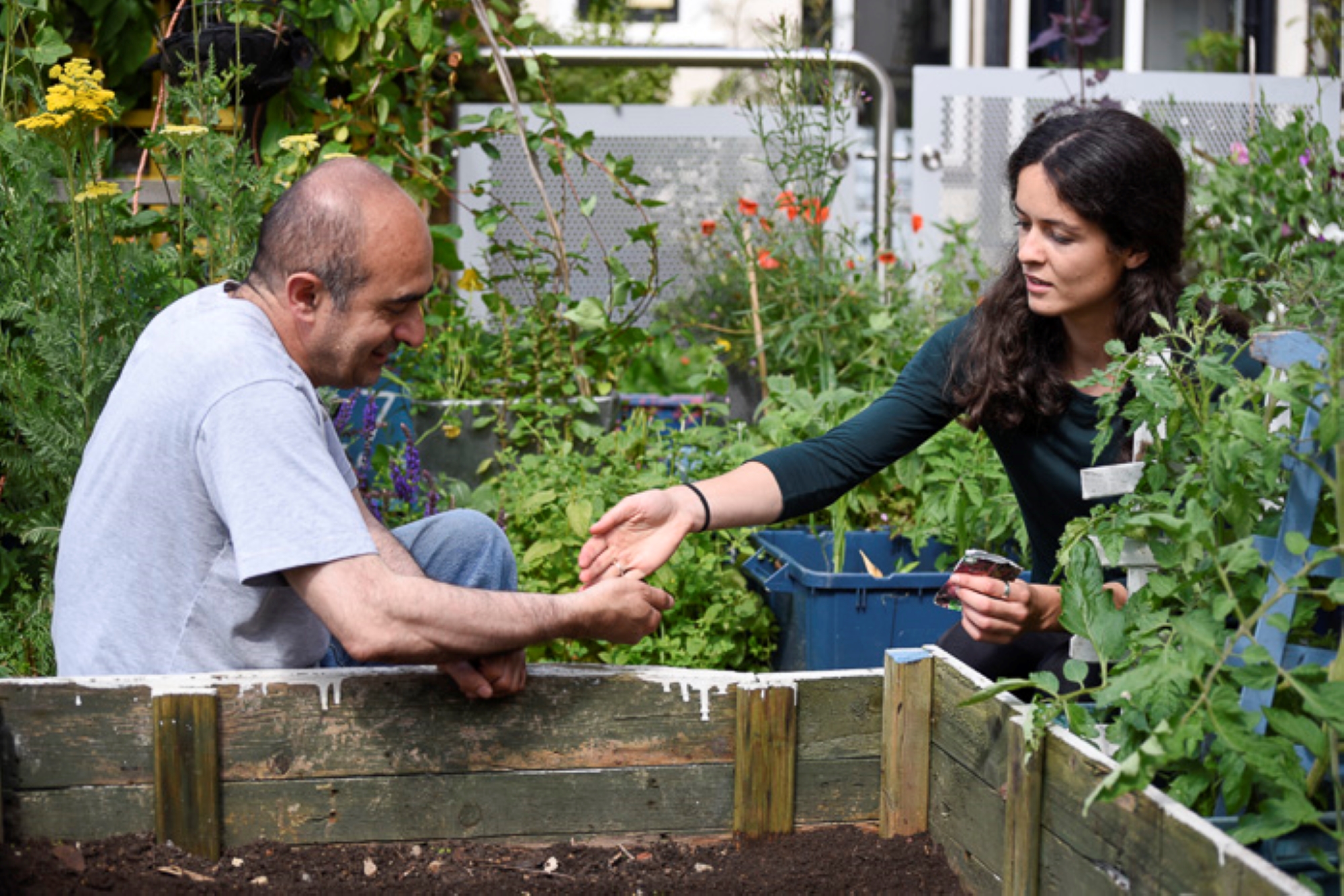For the past two years, our Walworth Neighbourhood Food Model has been exploring how to build a more just, collaborative and sustainable local food system.
In this time, we’ve shifted from a food insecurity to a food security approach. Though the distinction might seem small, we want to share how a change in language has not only influenced the way we think but also the way we work.
Choosing the less obvious solution
The COVID-19 pandemic revealed and exacerbated the distressing level of food insecurity in Walworth.
Even as the immediate threat of the virus receded, far too many households struggled to put food on their table. Since then, the cost of living crisis has deepened the cracks in an already crumbling food system, and the accelerating climate crisis continues to add even more pressure.
The Food and Agriculture Organisation (FAO) of the United Nations defines food insecurity as the lack of “regular access to enough safe and nutritious food for normal growth and development and an active and healthy life”.
Supplying more food seems like the logical response, and it’s the solution we immediately rushed to during the pandemic. Our Emergency Food Hub delivered 40,000 food parcels to thousands of people in the neighbourhood. While we are still proud of the scale and speed of our response, and the over 400 volunteers that made this possible, the level of demand was staggering.
Our experience showed us that emergency provision was not enough. In fact it felt like we were missing the point. A simple analysis showed that if we could convert just 1% of money spent yearly on food in Walworth into local expenditure, we would exceed the budget of all food insecurity projects being funded in the neighbourhood.
Focusing on supply was logical, but it also masked the huge potential to tackle the issue at the root and work towards a thriving local food system.
Thinking big, acting local
Our food security model prioritises a radical transformation of our local food systems that centres the agency and power of our community.
On one hand, such an approach is about thinking big. Together, we try to understand the scale and complexity of the problem and the necessity of sweeping systems change. On the other hand, we also act small, or locally, by beginning where we are. Systems, after all, are made up of people, places and relationships.
Our Mapping Project for example, started out on the streets of Walworth. Isabela, WNFM’s Project Officer, went out to connect with local “food lovers” – people who grow, supply, cook and share food in the neighbourhood. Based on recommendations from the people she met from one stop to another, she developed a network of connections who finally had the chance to gather for a celebratory meal in November last year.
Two iterations of our Action Learning Groups have brought together food growers and businesses based in Southwark. In these sessions participants shared their experiences and challenges and worked collectively to develop solutions. As we started to connect with projects and partners already engaged in a diversity of food initiatives, we were excited to discover that we weren’t creating anything new- the knowledge and ideas are already here. Our role has been to facilitate the space for our existing ecosystem to continue growing and thriving.
Soon we will be reopening the Walworth Living Room, a community hub that is open and free to all. Food is part of what holds the space together, and through our operations we will continue to bring our WNFM principles to life. We’re hoping to extend our reach by embedding our model in the highstreet. Working with Fabrix, a development and investment partner, we are exploring how to create a long-term home for the Neighbourhood Food Model on Walworth Road that is rooted in community engagement, economic empowerment and cultural preservation.
Get in touch with Isabela if you are interested in hearing more about our plans. We would love to continue connecting and collaborating with projects working on sustainable local food systems.
We are also eager to continue developing our thinking and actions in collaboration with others, so let us know if our food systems approach has inspired some ideas!
